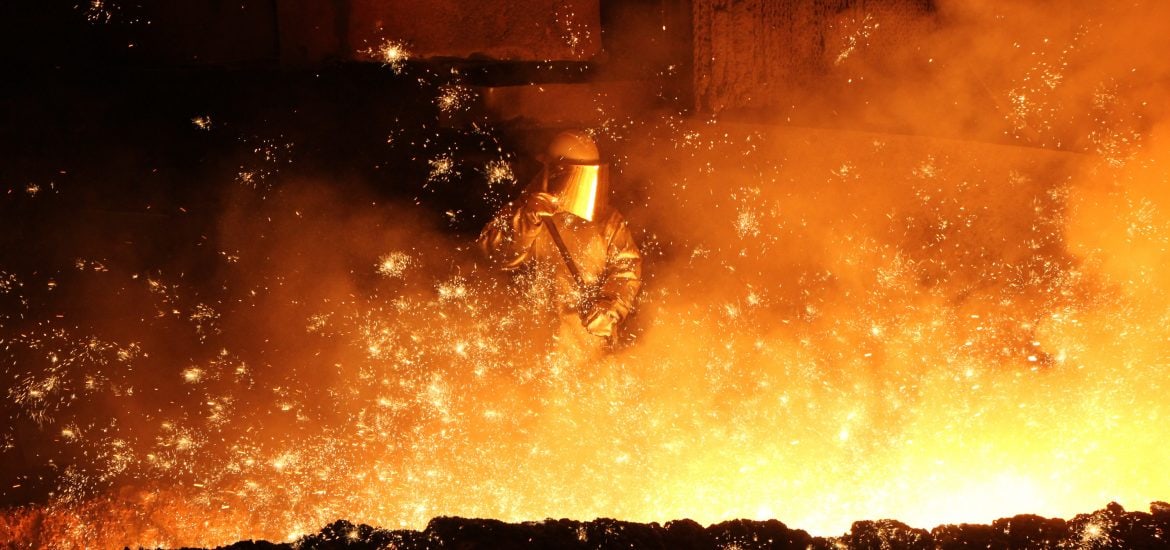.Not big enough
by Spider, a scientist by day, socialist at night, fed information from an interconnected, inescapable web.

If the pandemic taught us but one thing, it's that global events are not adequately handled by governments. The politicians that comprise them think too locally, too provincially, can only see until the next PR event. Full of hot air and empty promises, they waste precious time with meaningless words. The pandemic rages on, mutating, crossing imaginary borders as if they were nothing.
It has also shown a potential for change, if only for a moment. Shortly after the (European) start, sales in bicycles boomed, streets were empty without prompting, governments bumbling and stumbling behind the facts, but with the more luminous among them quickly responding with pop-up bicycle paths. Not far behind were the politicians of the shitfucker variant [a term coined by theJuiceMedia], ready with reasons why this wasn't 100% kosher, reverting the improvements back to the original SNAFU situation. Quickly shuffling past, furtively glancing behind them, hoping that nobody noticed that rapid political action was *actually* possible. Let the people believe that government action must be eternally slow and necessarily sluggish. But we noticed.
More examples emerged of sudden rapid action, even by otherwise lumbering government bodies. Suddenly, initiatives sprung from its members that were put into action before the wheels of the showstoppers could creak into action. PPE was shared with hospitals, online lectures emerged, a rapid shift in publication strategy meant that COVID-related scientific publications could be published fast. Suddenly the impossible was shown to be possible with a little willpower and a lethal driving force behind it.
This was not always without hiccups, as the less up-to-date struggled with online meeting etiquette, the importance of external microphones and gaming headsets, webcam supplies, the pros and cons of various online meeting platforms. The partial meltdowns of the network infrastructure. But change it did, if only for a moment. We can do meetings without wasting CO2 on travel, hotel stays, conference fees, pointless SWAG. We can see colleagues from all over with nothing but an internet connection and a laptop, join in hackathons, code camps, collaborative writing events. Skies turned an unfamiliar shade of blue, family ties were strengthened, reaffirmed.
Fast forward months later, and the wave that propelled us now pulls us back. Back to the comfort of the situation we know, the familiar, the daily commute, the 12 flights per year, the hectic rush towards another pointless meeting in another stuffy room with ego-tripping chest-thumpers gladly taking you on hours-long edit journeys of their highly polished word documents. E-mails and Tweets filled with the sentiment to go back to the way it was before. We're tired, we don't want another lockdown, we want the vaccines now, get it over with. Forget about it all. Lose the progress we made. Forget it, please.
Throughout all of this, the governmental leadership was painfully inadequate, lacking in decisiveness and with watered-down, decisions and mostly advice that could have been much more effective. Too provincial, too local. Imagining the imaginary lines magically stopping the viral spread because how could it not. It wasn't big enough, it still isn't. Not enough movement forward, and now the pull drags us back towards a worse situation than from where we started.
There was a painful need for an organisation that thinks on a bigger scale, that acts in response to global, earth threatening events. An organisation without special interests, stakeholders, customers, or politicians. While this sounds painfully akin to the latest plot of the Marvel cinematic universe, there is a genuine need. The UN, while interesting as an international forum for countries to throw views and opinions at each other, can not fill this role. Its members answer to their countries, carry with them the interest of their countries, and again, it's too local, too provincial, not big enough. Because the bigger global threat is upon us. Forget the pandemic, it's not big enough. Climate change is here and needs action now.
Again, the politicians drag their heels, unable to see beyond their next PR event, beyond their circle of voters. Wasting precious time with empty promises: "Carbon neutral by 2060!", "Coal until 2038!", "No gasoline engines by 2040" [all real statements by countries...]. When these deadlines come around, 20 years in the future, those same politicians will have long since retired, never responsible. By all means, do not act now. They are "funding new innovative solutions", openly avoiding having to act at all, shuffling along, at most making small decisions for their little fraction of the world. Any action is, as before, too little, too watered down to have any chance of effect, not big enough. Plastic suffocating the oceans? Well, they're cheap. Well done, politician. Ice caps melting? Well maybe we should fund more research. Congratulations, leaders. Rainforest being obliterated? Nothing we can do, I'm afraid. Ah well, that's alright then. No action, a smidge of money for a wind farm here or a solar farm there, just enough for political pandering while waiting for the other shoe to drop.
Climate change is going to be horrific, humanity will not deal well with it. Populations will shift, ignoring the venerable imaginary country borders that separate the one politician's problem from the other's. Extreme weather events, pandemics, you've read it all. You know this. You know it can be mitigated by action, and action now. And we've seen it can be done, COVID-19 has shown glimpses of this. But there is nobody who speaks for all of us without bias, no organization that acts for all of us, equally. Separated by their imaginary boundaries, the egos of the local politicians will not fix a global problem. They've become too adept at wiggling out, at saying nothing, doing as little as possible, popular but hollow. Their administration highly skilled at avoiding work, blocking action, and showcasing this as the only way politicians can move on the chessboard. Next up on the agenda, words prolapsing out of their pie-holes that it's now too late, nothing can be done. Hands up, it's over, we're done.
But the tools are there and ready to be applied, we know it, we have seen it. Energy technologies like wind turbines, solar cells, just more, much faster, now. Waste management by banning single-use plastics, taxing plastic production and plastic waste. Taxing oil extraction, taxing fuel use for all modes of transportation. Reinvesting those taxes in solar cells, wind turbines, electric storage capacity, and research for tomorrow. Subsidizing low-CO2 transportation methods, taxing the rich, disincentivizing buying all those tons of unrepairable products that ends up but a year later in the landfills. There is plenty of funding available this way, plenty of work to do in the new eco-economy [see Cory Doctorow's rants]. All it takes is a global move. Drastic action, not words, and now.
Spyder, 'Not big enough', aknownspace, 2020, 2, 1
